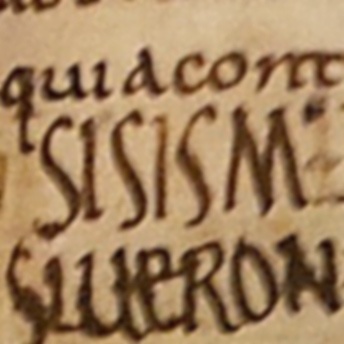
Seminar: “Isidorus artigraphus: Isidore of Seville as an Author of a Carolingian Grammatical Handbook”
Evina Steinová (Mellon Fellow, PIMS)
Isidore of Seville (c. 560 – 636) was a prolific writer, who authored works of theology and science, historiography and monastic life. He is remembered chiefly as an author of the most important medieval encyclopedia, the Etymologies. Yet, a handbook of grammar, an ars grammatica, is not among his oeuvre. Nevertheless, a number of Carolingian manuscripts from the ninth century contain a grammatical treatise bearing the title Ars Isidori or Liber Isidori de grammatica. When compared with the works of the Sevillan bishop, it becomes evident that this text corresponds to the first of the twenty books into which the Etymologies were divided, transmitted separately from the rest of Isidore’s massive encyclopedia. The separate transmission of the first book of the Etymologies is but one of several indications that Carolingian masters regarded Isidore as a grammarian placing him into a company of great ancient figures of this discipline, such as Donatus, Priscian or Servius. How is it possible that a part of Isidore’s encyclopedia, a text which was clearly not intended for teaching, became absorbed into Carolingian grammatical curriculum? What transformations in the realm of grammatica are revealed by this appropriation of the work of the Sevillan bishop? And what changes might have the adoption of such a text for teaching enacted in the early medieval classroom?


